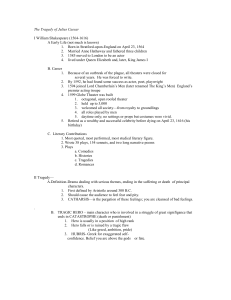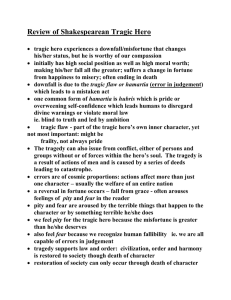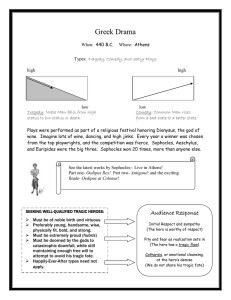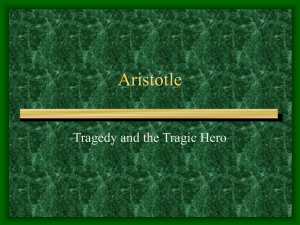Aristotle’s Definition of a Tragic Hero
advertisement
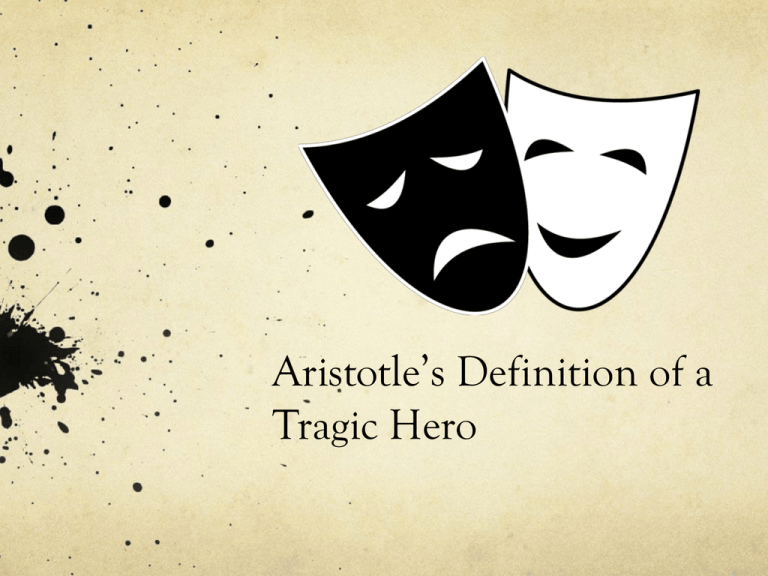
Aristotle’s Definition of a Tragic Hero Essential Questions To what extent does Okonkwo fit Aristotle’s definition of a tragic hero? What flaw leads to his downfall? Aristotle first defined tragedy in his book Poetics written in about 330 BC: “an imitation of an action that is serious, complete, and of a certain magnitude; in language embellished with each kind of artistic ornament, the several kinds being found in separate parts of the play; in the form of action, not of narrative; through pity and fear affecting the proper purgation of these emotions” Aristotelian Tragedy In Plain English… • Tragedy is any serious and dignified drama that describes a conflict between the hero (protagonist) and a superior force (destiny, chance, society, god) and reaches a sorrowful conclusion that arouses pity or fear in the audience. The Tragic Hero • Is a person who is great and admirable in both his abilities and opportunities; someone the audience looks up to. • Is a person so highly placed in society that his actions involve the well-being of all its members. • Always capable of greatness Tragic Hero Trait #1 The hero has a mixture of good and bad in his personality. Tragic Hero Trait #2 He has a fatal flaw, or hamartia, which leads to his downfall. Tragic Hero Trait #3 He usually goes on a journey or participates in a quest. Tragic Hero Trait #4 He has a large capacity for suffering. Tragic Hero Trait #5 His downfall is often preceded by self-realization.
